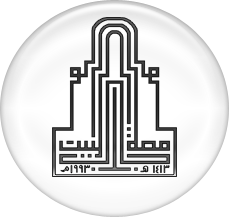| DC Field | Value | Language |
|---|
| dc.contributor.author | صفاء سويلميين | - |
| dc.contributor.author | عبد الرؤوف كساسبة | - |
| dc.date.accessioned | 2022-10-09T10:33:54Z | - |
| dc.date.available | 2022-10-09T10:33:54Z | - |
| dc.identifier.uri | http://hdl.handle.net/123456789/2339 | - |
| dc.description.abstract | Antiquities are generally considered one of the most important aspects of civilizations which reflect their history, establishment and development. Considering the great importance of antiquities, all legislations, including the Jordanian ones, granted them a special protection through organizing the mechanism for dealing with and keeping such antiquities safe. This study aims at addressing the effectiveness of protection that the Jordanian legislator granted to antiquities, and its keenness on taking care of them.
This study addresses the concept of antiquities, in terms of their definition and distinguishing them from other similar different concepts, as well as stating the legal nature of antiquities in general. It also addresses the principles underlying the administrative protection of antiquities, besides the manner and mechanisms of such protection, whether during the excavation phase or following the discovery of such antiquities, as well as the shortcomings in some aspects of this protection whether out of lack of precision of legislations governing them or their efficiency.
The study came up with several results, the most prominent of which are: the lack of explicit controls determining the liability of the one who grants the power of excavation, particularly, in the event that such antiquities are destroyed, as well as keeping on granting the management authority to loan or present antiquities as a gift, without placing clear constraints thereon.
In light of this, the study also concluded a series of recommendations, the most prominent among which are: establishing explicit controls to protect antiquities, particularly, during the excavation phase and the extent of liability for their destruction, as well as to place further constraints on the management authority to loan or present such antiquities as a gift.
تعدُّ الآثار من أهم أوجه الحضارات التي تعبّر عن تاريخها ونشأتها وتطوّرها، ولما للآثار من أهمية بالغة، فقد حرصت التّشريعات جميعها -ومنها التّشريعات الأردنيّة- على إيلاءها حماية خاصّة؛ من خلال تنظيم آلية التّعامل معها والحفاظ على سلامتها.
تتناول هذه الدّراسة فعاليّة الحماية التي أولاها المشرّع الأردنيّ للآثار ومدى حرصه على رعايتها.
وتبحث الدّراسة في ماهية الآثار؛ مميّزة مفهوم الآثار عما يشابهه من مفاهيم مختلفة, مع بيان الطّبيعة القانونيّة للآثار عموما، والمبادئ التي تقوم عليها الحماية الإداريّة للآثار وكيفيّة حماية الآثار سواء خلال مرحلة التّنقيب عنها أو بعد اكتشافها، والقصور في بعض جوانب هذه الحماية سواء من حيث دقة التّشريعات النّاظمة لها أو كفايتها.
وخلصت الدّراسة إلى العديد من النّتائج، أبرزها: عدم وجود ضوابط واضحة تحدّد مسؤوليّة من يمنح سلطة التّنقيب عن الآثار, وخاصّة في حال إتلافها، والتّحفظ على منح الإدارة سلطة إعارة الآثار أو إهدائها دون قيود واضحة تحدّد هذا الأمر, وفي ضوء ذلك خرجت الدّراسة بالعديد من التّوصيات، أبرزها: وضع ضوابط واضحة لحماية الآثار وخاصّة خلال مرحلة التّنقيب عنها, والمسؤوليّة المترتّبة عن إتلافها، وكذلك وضع قيود أكثر على سلطة الإدارة بإعارة الآثار أو إهدائها. | en_US |
| dc.subject | الكلمات الدالة: الآثار، الحماية الإداريّة، التّنقيب، إعارة الآثار. Keywords: Antiquities, Administrative Protection, Excavation, Loaning Antiquities. | en_US |
| dc.title | فعاليّة الحماية الإداريّة للآثار في النّظام القانونيّ الأردنيّ | en_US |
| dc.type | Other | en_US |
| Appears in Collections: | المجلد 1، عدد 1 لسنة 2022 (سلسلة العلوم السياسية والقانون)
|

